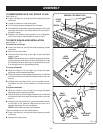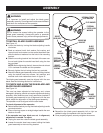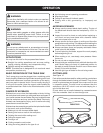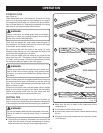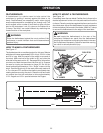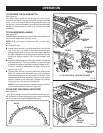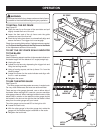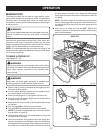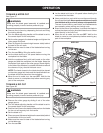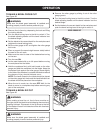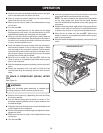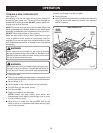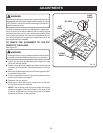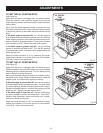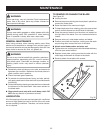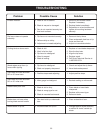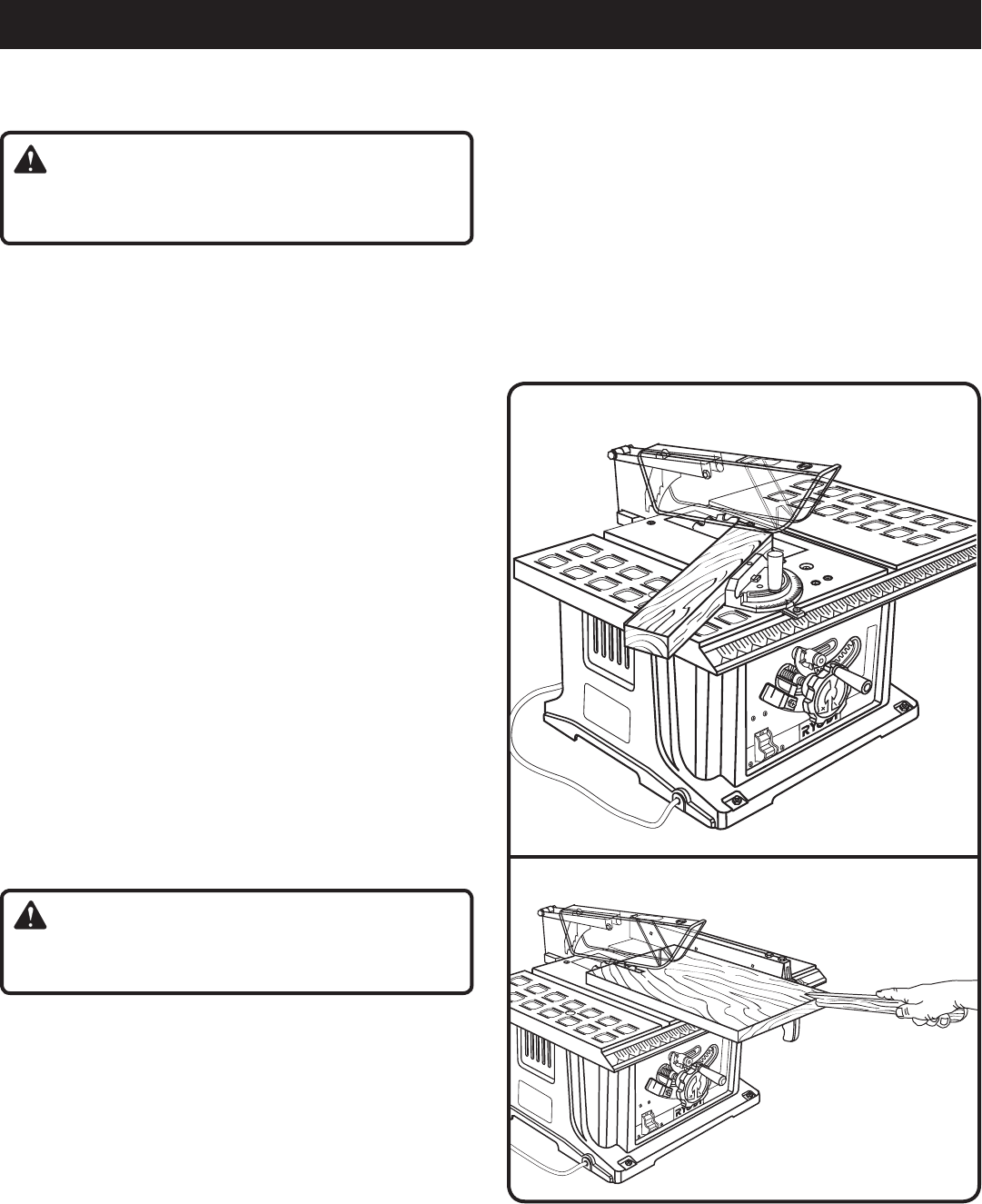
26
OPERATION
Fig. 27
Fig. 28
RIP CUT
MITER CUT
TO MAKE A MITER CUT
See Figure 27.
WARNING:
Make sure the blade guard assembly is installed and
working properly to avoid serious personal injury.
Remove the rip fence by depressing the lock and lifting
the locking handle.
Turn the blade adjusting handle until the blade is set to
the correct depth for the workpiece.
Set the miter gauge to the desired angle and tighten the
miter gauge lock knob.
Place a support (the same height as saw table) behind
the saw for the cut work.
Make sure the wood is clear of the blade before turning
on the saw.
Turn the saw ON by lifting the switch button.
Let the blade build up to full speed before moving the
workpiece into the blade.
Hold the workpiece firmly with both hands on the miter
gauge and feed the workpiece into the blade. Keep the
workpiece flush against the miter gauge. Stand slightly
to the side of the wood as it contacts the blade to reduce
the chance of injury should kickback occur.
NOTE: The hand closest to the blade should be placed
on the miter gauge lock knob and the hand farthest from
the blade should be placed on the workpiece.
When the cut is made, turn the saw OFF. Wait for the
blade to come to a complete stop before removing any
part of the workpiece.
TO MAKE A RIP CUT
See Figure 28.
WARNING:
Make sure the blade guard assembly is installed and
working properly to avoid serious personal injury.
Remove the miter gauge by sliding it out of the miter
gauge groove.
Turn the blade adjusting handle until the blade is set to
the correct depth for the workpiece.
Position the rip fence the desired distance from the blade
for the cut and securely lock the handle.
Set the blade to 0˚.
Place a support (the same height as the saw table) behind
the table saw for the cut work.
Make sure the wood is clear of the blade before turning
on the table saw.
Turn the saw ON.
Let the blade build up to full speed before feeding the
workpiece into the blade.
Use a push block or push stick to move the wood through
the cut past the blade. Never push a small piece of wood
into the blade with your hand, always use a push stick
.
The use of push blocks, push sticks, and featherboards
are necessary when making non-through cuts.
Stand to the side of the wood as it contacts the blade to
reduce the chance of injury should kickback occur. Never
stand directly in the line of cut.
When the cut is made, turn the saw OFF. Wait for the
blade to come to a complete stop before removing any
part of the workpiece.



